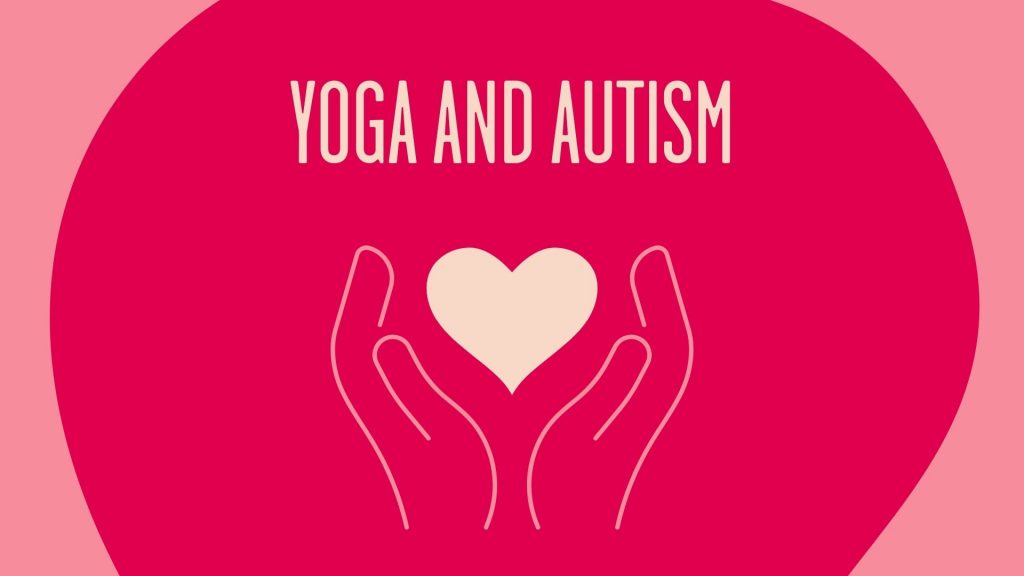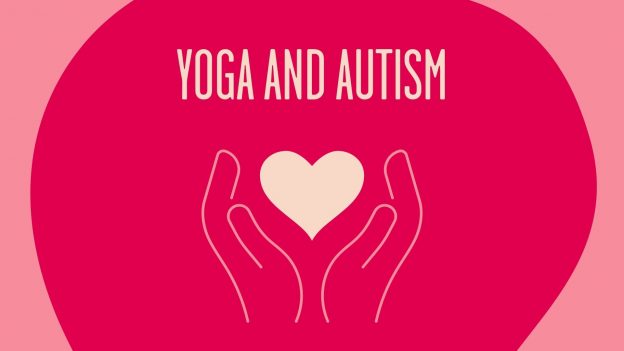
Yoga and autism. What types of regular yoga practice support those on the autism spectrum? Is yoga for neurodiversity significantly different? World autism day reminds us that it is time to think about which yoga classes best serve neurodiversity and what action we can take to make yoga a more inclusive practice.
What is autism, ASD and neurodiversity?
Before we begin to explore yoga for autism and neurodiversity, we thought we’d start with a few definitions. ASD is short for Autism Spectrum Disorder. Autism is a neurological condition (belonging to the nervous system, brain and spinal column) and is best understood as a spectrum condition, so there isn’t one fixed experience that we can detail. ASD can refer to a wide range of difference of experience and behaviour and these can be as diverse as communication and social interaction and sensitivity to light, sound, taste or touch often leading to overwhelm. Repetitive behaviour can offer safety and security and can be calming. Sometimes small changes can trigger anxiety in those with ASD.
Remember, though that autism is a spectrum, so not everyone with autism is the same. The spectrum is not linear. Perhaps a better way of looking at it is like a colour wheel, for instance, in which different traits ebb and flow. Neurodiversity is a difference in the brain ‘wiring’. If you are neurotypical – your brain will process information in the most commonly understood ways and you’re more likely to have an easier time of things because society has been set up for people like you. This means neutral experiences can sometimes be experienced in a negative way by neurodivergent people because of societal structures and expectations. But, things aren’t so clear cut. Even those who are mainly neurotypical can show neurodivergent traits. What are those and what does that mean?
Neurodivergence
Neurodivergent traits include: sensory sensitivity; social and communication challenges; focus and attention challenges; intense behaviours; visual learners and stimulatory behaviours.
In short neurodivergence is not one thing, and nor is it something that needs to be fixed. It is an understanding that all brains are different and therefore void of value judgements. We can perhaps learn to accept ASD and explore ways in which we can create an environment that is attuned to diverse needs and that is safe and comfortable.
Which yoga classes are most supportive?
There is no one experience of ASD so the experience of yoga will also be diverse. If you’re a yoga teacher you might find that loud music, lights and unclear instruction are elements of yoga classes that people with ASD might find challenging. So whilst the practices of yoga may offer a great deal of support and benefit, it is often the environment in which yoga is presented that can be challenging. Practicing yoga online without music which gives the practitioner greater control can offer neurodivergent people with a great solution. Practicing at home where the environment can be controlled with greater ease and where simple elements like volume, the possibility to check back on what the teacher says and playback visual cues and minimising social interaction in an environment that can lead to sensory overload are all minimised.
In some instances, it can also be useful for people who are autistic to have predictability and repetition folded into their classes. On Movement for Modern Life, customisable movelists and creating favourites means that classes can be repeated as required and accessed easily.
How can yoga support neurodivergence?
If you are a regular yoga practitioner, you know the benefits! Yoga is calming: the meditative aspects and breathing consciously offer a balm to a busy mind. These are the practices which can soothe anxiety and sensory overload. Yoga is at its heart a non-judgemental practice where you are able to practice alongside others without needing to interact or interpret what is happening. In several studies carried out by Harvard Health, yoga is a key part of reducing anxiety in people with obsessive compulsive disorder which is also something that many people with ASD face.
Breathing, visualising, working with intention, yoga to support sleep and restorative yoga are all extremely helpful in supporting autistic people. This can be as simple as lengthening the exhale to be double the length of the inhale. This can calm anxiety as can taking deep, belly breaths.
Why do yoga postures help?
In addition to this, yoga offers a powerful way to connect with the body. For those with ASD who struggle with motor skills and coordination, yoga offers a way to reconnect with the body whilst building strength, flexibility and muscle tone.
There are more subtle ways in which yoga can support and help with sensory processing. This refers to how the nervous system receives and responds to messages from the senses for example turning them into movement and action. Although the five senses play a major role in this. There is a hidden ‘sense’ that can provide a key to understanding how yoga can be beneficial. This is proprioception: which is our sense of spatial awareness. Yoga directly supports an increase in proprioception. In some yoga classes the physical act of interacting with a body part can be extremely helpful. This can be as simple as massaging the body to increase pressure before moving. Proprioceptive dysfunction often results in stomping of feet or banging into walls; it is a need for deep pressure. In yoga there is space for these actions naturally and from there a deeper proprioceptive awareness can emerge.
What is most interesting though, is the link between proprioception, self-regulation and sensory processing. The physical poses in yoga support coordination, balance, muscle strengthening, core strength and stability. Paired with breathing, this can result in a reduction of sensory overload, and a release of built-up emotion and energy. This then makes space for increased communication and greater social regulation.
Your Experiences
If you are autistic and would like to share your experiences in your own words, we would love to hear them. You can of course, share these with us anonymously by emailing: support@movementformodernlife.com or please comment below. Your voice is important and is the only one that can express what your experience is like so please let us know.
Want to find out more?
Why not listen to our podcast with Jyoti Jo Manuel founder of Special Yoga. In the podcast Jyoti discusses why she set up special yoga and how important it is to begin with listening. Special yoga offers training to teach yoga and mindfulness for autism and adhd.





This is a great tip especially to those fresh to the blogosphere. Brief but very accurate info… Thank you for sharing this one. A must read post!